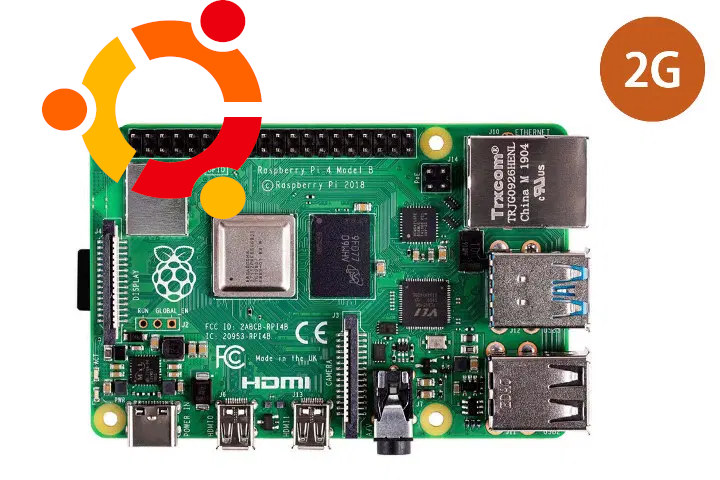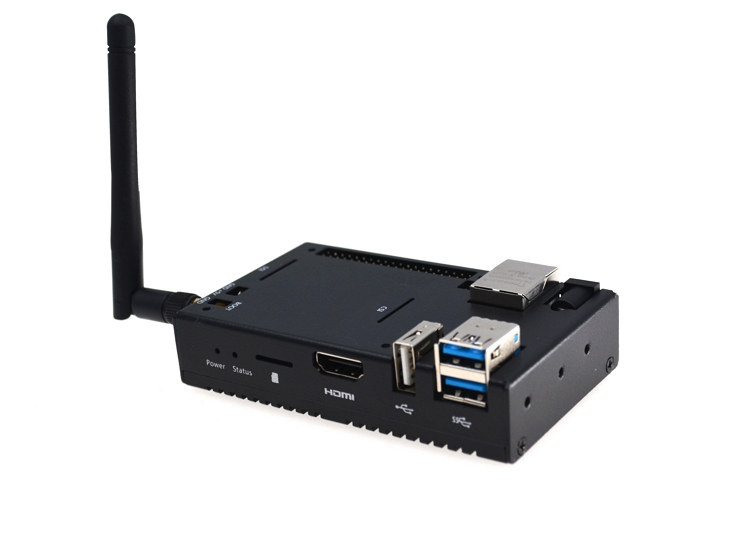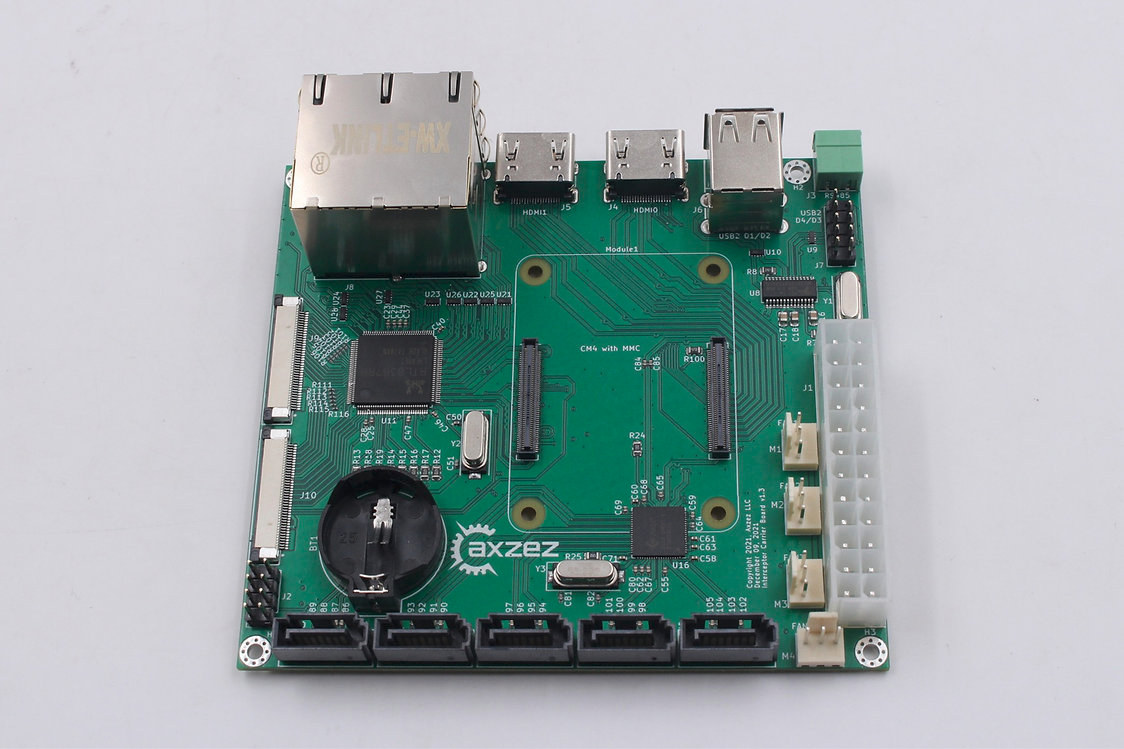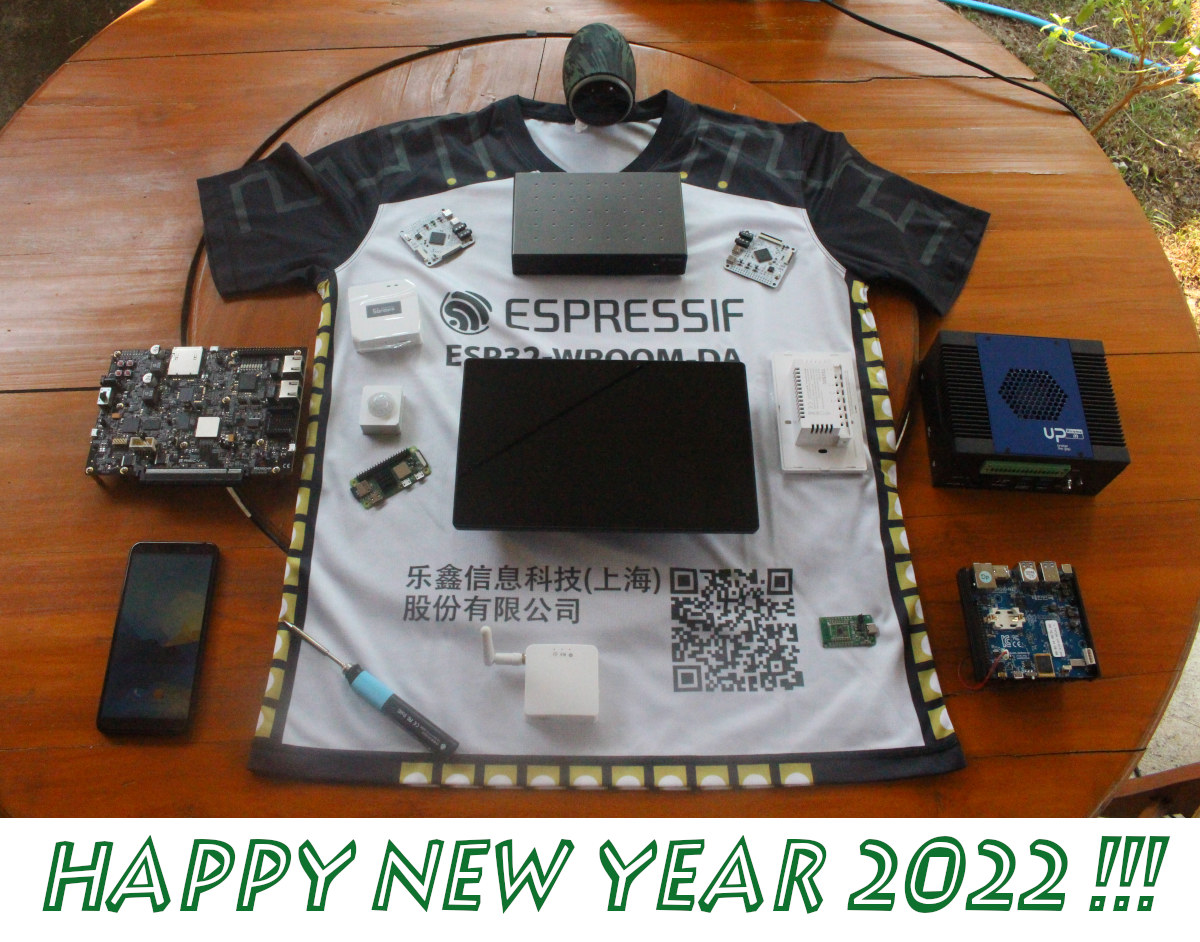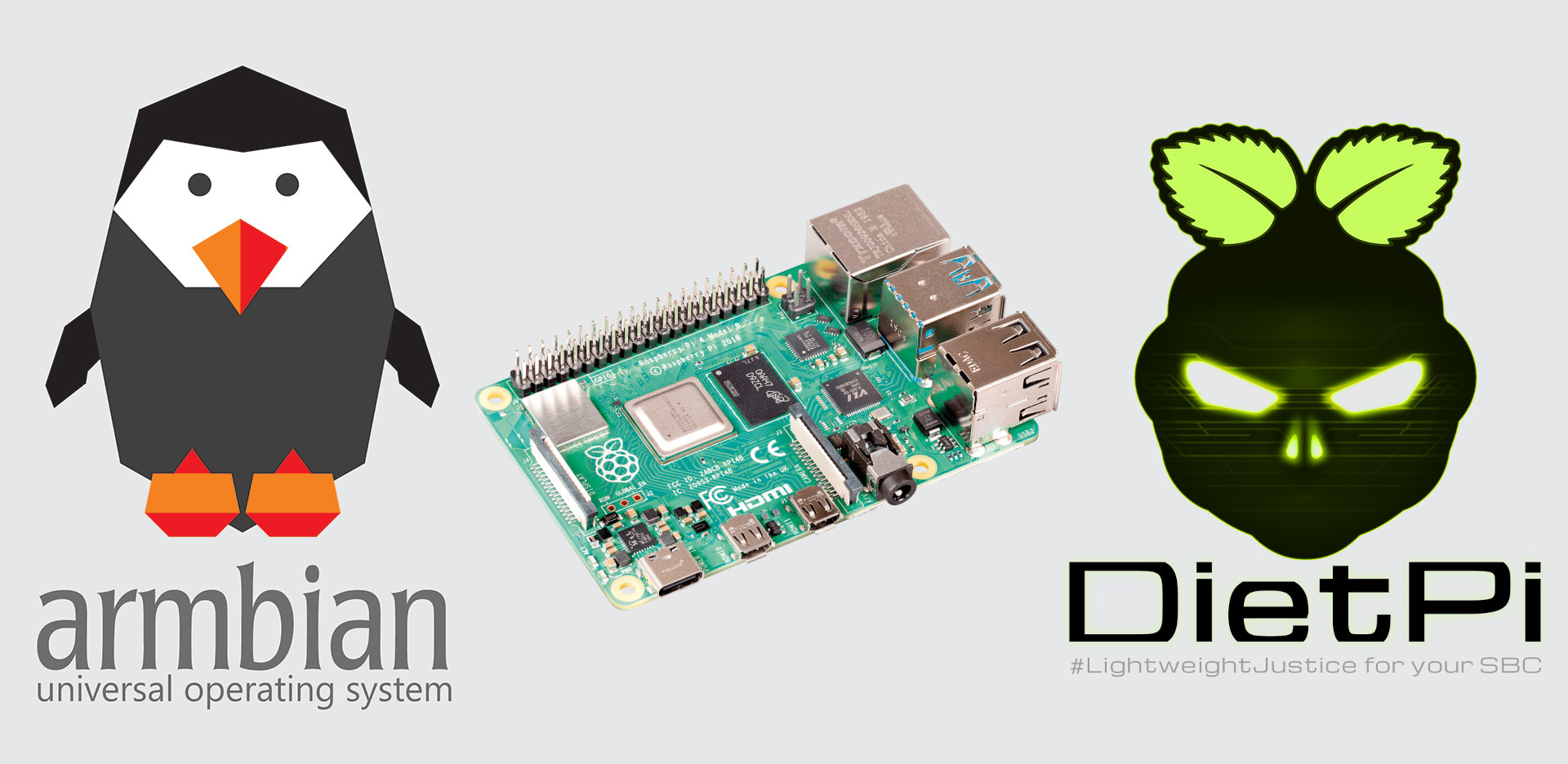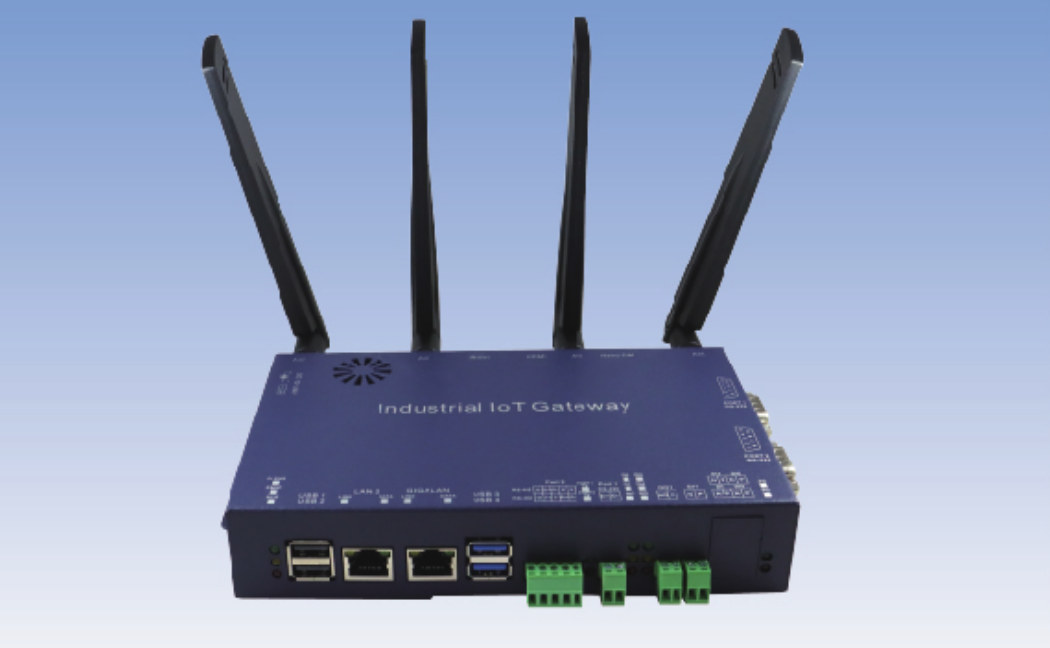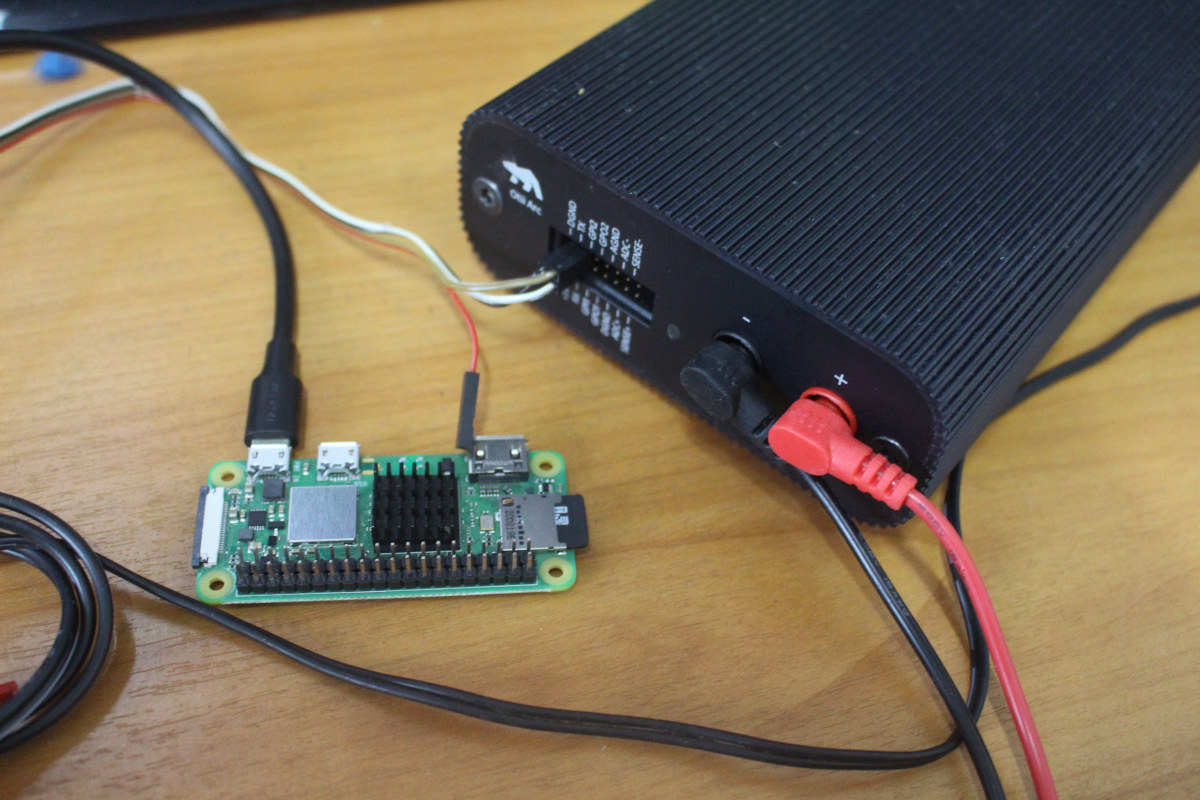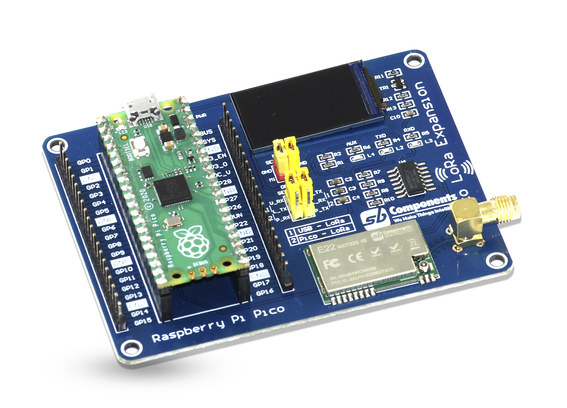Canonical used to recommend Raspberry Pi 4 with at least 4GB RAM to run Ubuntu Desktop, but Ubuntu 22.04 LTS should run more smoothly on the Raspberry Pi 4 2GB as the company has enabled zswap by default to allow the Linux operating system to run better on systems with less memory. Canonical explains that zswap is essentially a compression tool. When a process is about to be moved to the swap file, zswap compresses it and checks whether the new, smaller size still needs to be moved or if it can stay in your RAM. It is much quicker to decompress a ‘zswapped’ page than it is to access the swap file so this is a great way of getting more bang for your buck from systems with smaller amounts of RAM. The good news is that you don’t even need to wait for Ubuntu 22.04 LTS to come […]
Raspberry Pi CM4 Nano industrial mini PC supports wide temperature range, 12-18V DC input
If you ever wanted a mini PC similar to Raspberry Pi 4 but working within a wider temperature range and supply voltage, as well as a few extra features, the Raspberry Pi CM4 Nano industrial mini PC with a metal enclosure might be worth looking at. Based on the EDATEC CM4 Nano carrier board, the mini PC supports Raspberry Pi CM4 with up to 8GB RAM, 32GB storage, optional WiFi 5 and Bluetooth 5.0, and offers one HDMI port, a flat cable HDMI + Touchscreen connector, Gigabit Ethernet, three USB 3.0 ports and more. It works in settings with -25 to +60°C ambient temperature and offers a 12-18V DC input. EDATEC (Raspberry Pi) CM4 Nano specifications compared to Raspberry Pi 4 SBC: The company uses the Raspberry Pi OS image for the board plus a Board Support Package (BSP) specific to CM4 Nano to support extra features like the RTC: […]
Raspberry Pi CM4 carrier board comes with 5x SATA, 4x GbE, 2x HDMI, RS-485 interfaces
We just wrote that Wiretrustee carrier board for Raspberry Pi CM4 with four SATA interfaces was canceled and made open-source hardware a few days ago, but the Axzez Interceptor carrier board is offering a solution that is somewhat similar with 5x SATA ports and designed for NAS, NVR, IoT, and Managed Switch applications. The Interceptor Carrier Board for Raspberry Pi CM4 notably includes two 4Kp60 capable HDMI ports, 5x SATA ports, 4x RJ45 Gigabit Ethernet ports, 4x USB 2.0 interfaces, RS-485, and is powered via an ATX-24 connector, with a Mini-ITX adapter in the works. Axzez Interceptor specifications: Compatible SoM – Raspberry Pi Compute Module 4 Storage Support for 5x SATA HDD/SSD via JMicron JMB585 PCIe to SATA controller Supports software RAID 0, 1, 5, 6 or 10 HDD sleep/standby Video Output – 2x full-size HDMI 2.0 connectors (4Kp60) Networking – 4x Gigabit Ethernet ports via Realtek RTL8367RB switch; programable […]
Year 2021 in review – Top 10 posts and statistics
As per tradition, we’ll look back at what happened during the year in the last post, and see what 2022 may have in store, plus the usual statistics from CNX Software website. The biggest story of 2021 has to be the worsening of semiconductors shortages with extremely long lead times, prices of some components going up multiple folds, constant complaints on Twitter about availability and prices. I think I even saw a website, hopefully misconfigured, showing an estimated availability of a specific STM32 MCU in 2037. This also gave rise to opportunities and board redesigns, with MotorComm Ethernet chips replacing some Realtek chips in SBCs such as NanoPi R2C and Orange Pi R1S Plus LTS, and CH9102F showing up as a replacement for CP2104 in some IoT boards. We also got some interesting Arm processors, but sadly the high-expected Rockchip RK3588 got delayed by another year, although it’s getting really […]
Raspberry Pi 4 gets Armbian test images, DietPi 7.9 released
Ubuntu and Debian images built by Armbian got popular because of the sad state of affairs of most single board computers. But since Raspberry Pi boards are rather well-supported by the Raspberry Pi Foundation and community, plus part of it is closed-source, there’s been little motivation by the Armbian community to work on it, and that means there’s no official support for Raspberry Pi. But some Armbian test images have just been released for Raspberry Pi 4, specifically Ubuntu 22.04 “Jammy Jellyfish” images with a CLI (headless) version, and two desktop variants with Cinnamon and XFCE desktop environments which you can download on their server(s). Separately, DietPi 7.9 lightweight Linux distribution based on Debian has also been released with various improvements. The good news about Armbian images for Raspberry Pi is that they exist, but the less good news is that those are still “test images”, and the popular board […]
5G IoT/AIoT industrial gateway ships with Raspberry Pi Compute Module 4
WPC-632-Pi CM4 is an industrial IoT gateway based on Raspberry Pi Compute Module 4 with optional 5G or 4G LTE cellular connectivity, that joins other Raspberry Pi CM4 industrial gateways such as CompuLab IOT-GATE-RPI4, CatsPi Industrial Lite, Modberry M500 CM4, among others. The Linux gateway features two Ethernet ports, RS232/RS485 and other I/Os via terminal blocks, mPCIe and M.2 sockets for expansion with 5G modem 4G LTE mode, AI accelerator, or an NVMe SSD, as well as support for 9V to 32V wide-range input power. WPC-632-Pi CM4 industrial gateway specifications: SoM – Raspberry Pi Compute Module 4 with Broadcom BCM2711 quad-core Cortex A72 processor with VideoCore VI GPU, up to 8GB RAM, up to 32GB flash, optional wireless module Storage – Optional PCIe SSD via M.2 key M socket Video and audio output – 1x micro HDMI port up to 4Kp60 with audio Camera – 1x MIPI CSI-2 connector Connectivity […]
A deep dive into Raspberry Pi Zero 2 W’s power consumption
When I completed my review of Raspberry Pi Zero 2 W, I mentioned I would test the power consumption of the board later. It took a while, but I’ve finally come around it using Otii Arc from Qoitech and Otii software to provide some pretty power consumption charts, and even energy consumption. Since the Raspberry Pi Foundation recommends a 5V/2.5A power supply, I’ll first try to get as close as possible as 2.5A, then I’ll go through tricks to reduce idle power consumption to less than 75 mA / 375 mW, and finally check the energy consumption under various CPU core count and frequency. Raspberry Pi Zero 2 W Power consumption under load, with accessories I started with the latest Raspberry Pi OS Lite “Bullseye” image and connected my Raspberry Pi Zero 2 W board to Qoitech Otii Arc tools as shown below. It used to cost around $500, but […]
LoRa expansion boards work with Raspberry Pi SBC and Raspberry Pi Pico board (Crowdfunding)
We’ve covered a number of LoRa solutions based on Raspberry Pi boards, and SB Components is now offering another with the LoRa HAT for Raspberry Pi equipped with an Ebyte E22 LoRa module operating in either the 433 MHz, or 868 and 915 MHz bands. The company also offers a LoRa expansion for Pico based on the same E22 module, adding a small 1.14-inch LCD for information display, and designed for the Raspberry Pi Pico board with the RP2040 dual-core Cortex-M0+ microcontroller. LoRa HAT for Raspberry Pi specifications: LoRa connectivity LoRa Module (one or the other) Ebyte E22-900T22S based on SX1262, operating in the 850 MHz to 930 MHz band Ebyte E22-400T22S based on SX1268, operating in the 410 MHz to 493MHz band Supported frequencies – 433 MHz, 868 MHz, 915 MHz Range – Up to 5 km line-of-sight Antenna – SMA antenna connector USB – 1x Micro USB port […]


